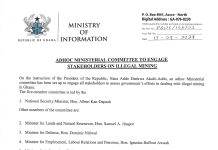The 28th day of September has been dedicated by the United Nations to commemorate as the International Day for Universal Access to Information (IDUAI). The day is set aside in recognition of the significance of access to information globally. This year’s celebration will focus on the importance of the online space for Access to Information.
The significance of empowering societies to bridge the divide in access to information cannot be overemphasised especially in this era where the world is closing in on digital space. In an increasingly interconnected world driven by information and technology, the concept of Universal Access to Information (UAI) has become more critical than ever.
According to the United Nations, UAImeans that everyone has the right to seek, receive, andimpart information. This right not only underpins democratic values but also plays a pivotal role in socio–economic development, education, healthcare, and global solidarity.
The Digital Divide
The absence of internet and digital technologies in some parts of the country serve as a major challenge to bridging the gap in access to Information. While the internet and digital technologies have revolutionized access to information, a significant portion of the global population still lacks reliable access to Information. Bridging this divide is essential to ensure that everyone can enjoy the benefits of UAI. According to the National Communications Authority, Ghana has experienced an increase in internet connectivity from 16.99 million in January 2022 to over 22.8 million in 2023. This represents This marks significant growth from the previous years with the penetration rate at 71.49%
Education can be enhanced significantly through UAI. With access to online learning resources, students can access a world of knowledge, regardless of their geographic location or socio–economic background. This can level the playing field and reduce educational disparities.
Universal access to medical information and telemedicine services is critical, especially in remote areas. Patients can receive medical advice, diagnosis, and even treatment without having to travel long distances. Also, easy access to Information encourages economic development. Information is a valuable resource for economic growth where entrepreneurs and businesses can access market data, connect with customers, and develop innovative solutions more easily. Universal Access to Information empowers citizens to stay informed about government actions and policies and participate more effectively in the democratic process, holding leaders more accountable.
The Role of Government
Government plays a crucial role in ensuring Universal Access to Information by enacting and enforcing laws that protect freedom of information and expression. Governments also need to invest in digital infrastructure, such as broadband internet access, equipment, and the needed technology to reduce the digital divide. This would go a long way to make information accessible to everyone irrespective of their geographical location and differences.
Public education on Digital Literacy must be intensified to equip citizens with the necessary skills needed to navigate the digital world safely and effectively. Also, the government must add digital education to the academic curriculum through the Ministry of Education. The STEM education is a good example that needs extra push and support by all stakeholders to help the country bridge the gap in digital literacy in the country.
The Role of Technology Companies
The various Tech companies in the country also have a major role to play in advancing Universal Access to Information. Citizen’s inability to purchase or use tech services and solutions is a major contributing factor to the digital divide. The various Tech Companies, who are key stakeholders, must therefore develop and promote affordable technology solutions to ensure that even those with limited financial means can afford access to information.
Another key issue Tech Companies must address is content moderation. They must balance the need for content with moderation and regulation to protect the citizenry against harmful content whiles preserving the concept of freedom of expression. In a world where cybersecurity has become a major threat to national security, technology companies must build resilient data protection programs to safeguard the data of individual users of the various digital platforms. More importantly, the design of tech products, services and solutions must consider accessibility, usability and persons with disability.
Universal Access to information is not just a fundamental human right, it’s a catalyst for progress. By ensuring that everyone can access, seek, and share information freely, societies can promote education, healthcare, economic, development, and democracy. Governments, tech companies, and individuals all have roles to play in advancing UAI and building a more inclusive and equitable world. It’s a collective effort that can help us harness the full potential of the digital age while upholding our shared values.
Source: MOI (PR Unit)
























